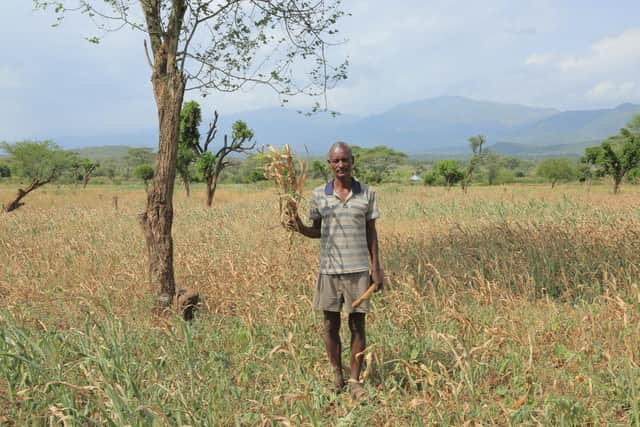If we don't act now, millions may die in East Africa - Sally Foster-Fulton
It may be a while since I did this the first time around, but the memories have come flooding back. I’ve also been reminded of how piercing the hunger cry is and how it prompts an immediate visceral response. There is no other sound quite like it. An infant doesn’t understand ‘wait, it’s coming’ or ‘don’t worry, it’ll be just a minute.’ The hunger cry sounds like a siren, it draws a deep guttural response, especially from the parents or other besotted family members. You drop what you’re doing, and you feed them.
In East Africa there is a hunger siren sounding. Babies, children, women and men of all ages are going hungry every day. Livestock have been dying in their millions. The worst drought in 40 years on top of conflict and a global pandemic have challenged already fragile infrastructures. The war in Ukraine has critically reduced food imports and driven prices through the ceiling. If we do not act now, millions may die. We can and must prevent this.
Advertisement
Hide AdAdvertisement
Hide Ad

When Russia invaded Ukraine, the response from people in the UK was unprecedented and inspiring. To date the Disasters Emergency Committee (DEC) has raised £380 million pounds (with £100 million raised in the first four days). It was an extraordinary outpouring of love and solidarity. I have a theory that our generosity was directly linked to us recognising ourselves in the situation in Ukraine. It could have been, could be us, and it resonated deeply. Like my granddaughter’s hunger cry, it drew a visceral response.
There is enough food in the world to feed everyone. While the public’s response to the humanitarian needs in Ukraine has been truly remarkable, we must also live up to our commitments and act in that same spirit for the Horn of Africa. In July the Scottish Government recognised the severity of the situation and released £250,000 of funding from its Humanitarian Emergency Fund to support the work of Christian Aid in Ethiopia and the work of Islamic Relief in neighbouring Somalia. This emergency assistance is already reaching those who need it most. But we can and must do more.
We must also urgently reflect on why food insecurity and the threat of famine is impacting our global neighbours in East Africa once again. Humanitarian aid provides a vital short-term solution, like a sticking plaster, but it’s not a long-term fix. The global food system is broken, with production in the hands of too few. Climate change is disrupting our weather patterns and in turn our ability to grow food. There needs to be a real focus on building and investing in community resilience, for example investment in sustainable farming, ensuring a short-term crisis doesn’t become a widespread catastrophe.
To read Christian Aid’s new report, released to coincide with World Humanitarian Day, go to: https://www.christianaid.org.uk/resources/our-work/ripping-off-band-aid-report
Sally Foster-Fulton, Head of Christian Aid Scotland
Subscribe
Subscribe at www.scotsman.com/subscriptions
Comments
Want to join the conversation? Please or to comment on this article.
